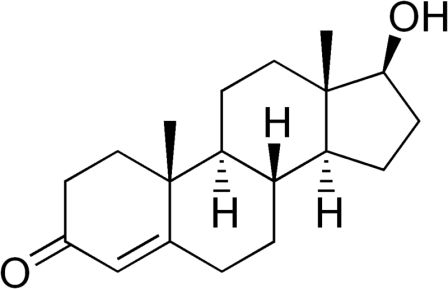Research unlocking how testosterone impacts brain function for aggression

Are you going to fight that angry bear or run from it? The answer might depend on how much testosterone is flowing in your brain. Researchers, led by Dr. Justin Carré, assistant professor of psychology at Nipissing University, are studying the neural circuits through which testosterone contributes to aggressive behaviour, helping to better understand aggression and anxiety, and the fight or flight response.
Carré and his team have just published an article,Testosterone Rapidly Increases Neural Reactivity to Threat in Healthy Men: A Novel Two-Step Pharmacological Challenge Paradigm, in Biological Psychiatry.
Testosterone, a steroid hormone, is well known to contribute to aggressive behaviour in males, but the neural circuits through which testosterone exerts these effects have not been clear.
Prior studies found that the administration of a single dose of testosterone influenced brain circuit function. Surprisingly, however, these studies were conducted exclusively in women.
Carré and his team sought to rectify this gap by conducting a study of the effects of testosterone on the brain’s response to threat cues in healthy men.
They focused their attention on brain structures that mediate threat processing and aggressive behaviour, including the amygdala, hypothalamus, and periaqueductal gray.
The researchers recruited 16 healthy young male volunteers, who completed two test days on which they received either testosterone or placebo. On both testing days, the men first received a drug that suppressed their testosterone. This step ensured that testosterone levels were similar among all study participants. The amount of testosterone administered in this study only returned testosterone levels to the normal range. Subjects then completed a face-matching task while undergoing a functional magnetic resonance imaging scan.
Data analyses revealed that, compared with placebo, testosterone increased reactivity of the amygdala, hypothalamus and periaqueductal grey when viewing angry facial expressions.
“We were able to show for the first time that increasing levels of testosterone within the normal physiological range can have a profound effect on brain circuits that are involved in threat-processing and human aggression,” said Carré, Assistant Professor at Nipissing University.
“Understanding testosterone effects on the brain activity patterns associated with threat and aggression may help us to better understand the ‘fight or flight’ response in males that may be relevant to aggression and anxiety,” commented Dr. John Krystal, Editor of Biological Psychiatry.
Expanding our knowledge of exactly how testosterone affects the male brain is particularly important, as testosterone augmentation has become increasingly promoted and aggressively marketed as a solution to reduced virility in aging men. Further work is indeed continuing, Carré said. “Our current work is examining the extent to which a single administration of testosterone influences aggressive and competitive behaviour in men.”
